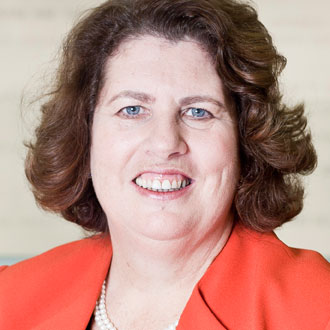Increasing regulation is undermining ‘real trust’, says NHS England deputy chair

Increasing state regulation of healthcare ‘undermines’ real trust in the system, and has ‘pervaded’ the health service for too long, NHS England’s deputy chairman has said.
Speaking at the annual conference of the King’s Fund health policy think tank today, Ed Smith said ‘real trust’ was where people are trusted to do the right thing, and don’t act out of ‘self interest’ in avoiding a sanction.
GP leaders said that they felt that GPs were particularly disadvantaged by over regulation, saying that the administrative burden of jumping through the CQC’s hoops for practices was far greater than for a larger organisation.
Mr Smith told delegates: ‘The regulatory reflex when trust declines, is to increase regulation. That’s the attempt to repair trust,’.
He added: ‘My view, long held is, that actually undermines the real basis of trust in systems, the intrinsic trust in organisation and their leaders. And I think over regulating professionals, can erode the foundation of their work, People switch off.
Related stories
Update: CQC could shut 200 ‘failing’ GP practices
I was inspected twice and I still can’t fathom the point of the CQC
‘So I think if trust exists solely because there are sanctions against those individuals, the. You don’t actually have trust. They will do what they have to do because the system tells them to do it, out of self interest. And that to me is the concept of regulated trust, which has pervaded our lives for too long.
‘Real trust, is held regardless of those sanctions. It’s held because people are trusted to do the right thing, I’d say all of the time, but nearly all of the times and that to me is a much more sustainable basis for trust and implementing change programmes, than the use of regulation.’
Commenting during the panel debate following Mr Smith’s speech, RCGP chair Dr Maureen Baker said regulators needed to address the administrative burden it placed on organisations.
She told delegates: ‘What I’d really like to see moving forward, is a reduction in the burden [of regulation]. It’s difficult enough when you’re a big institution: running all the processes you have to do for CQC inspection. The burden on small practices is really very significant.
‘So if we can get the same desire to demonstrate excellence, move to excellence and understand there’s a line below which people aren’t allowed to fall. We then need to streamline that, so we can maximise opportunities from CQC, but not have people filling in forms and jumping through hoops when that’s unnecessary.’
Dr Baker said she awaited with interest the results of the first round of CQC inspections, adding she would welcome the chance for excellent general practice to be highlighted.
Pulse July survey
Take our July 2025 survey to potentially win £1.000 worth of tokens












